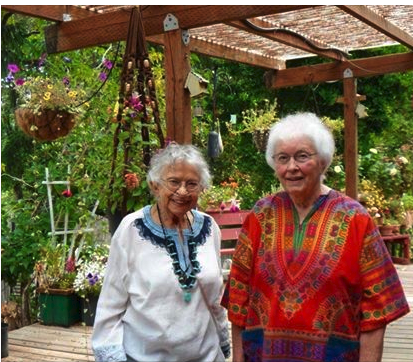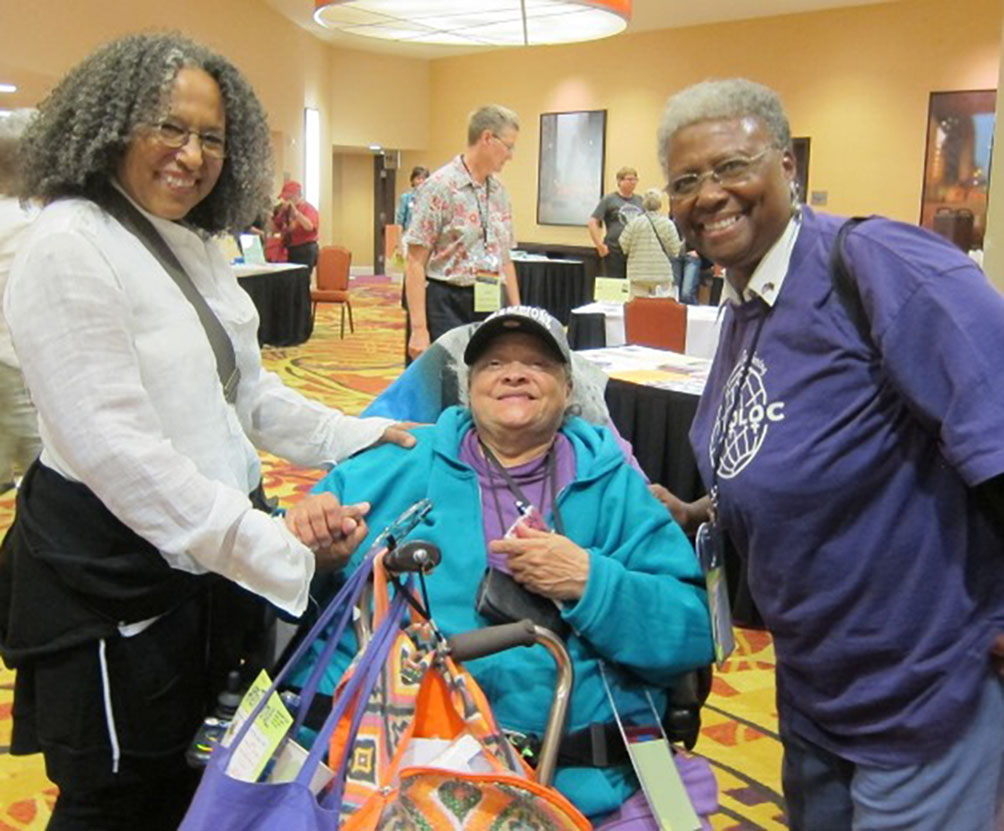What Is Ageism
Ageism is a social disease.

ARE YOU AGEIST?
Do you consider “young” a compliment and “old” a derogatory synonym for ugly, decrepit, out-of-date (“You don’t look your age.”)?
Do you speak/do for an Old Lesbian instead of letting her speak/do for herself and assume she needs help?
Do you view an Old Lesbian either as a burden or an icon, rather than as an equal with whom a reciprocal relationship is desirable?
Do you patronize a courageous Old Lesbian by trivializing her anger as “feistiness?” (Would you call Superman “feisty?”)
Do you categorize an outspoken Old Lesbian as “complaining,” “difficult,” or “crotchety?”

Do you assume that an Old Lesbian is asexual?
Are you unsupportive of an Old Lesbian looking for a partner, or disrespectful of an Old Lesbian’s choice to be single?
Do you refrain from confronting ageist remarks because they are “not really meant that way?”
— The author, Mary M. Morgan, participates in a national movement to end ageism. Its members always give their age when they write or speak.
Mary M. Morgan was born September 10, 1925 and died January 30, 2015.
